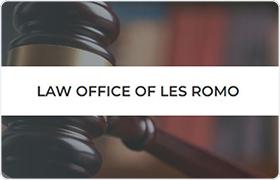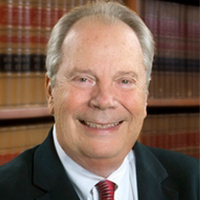Cedar Park Real Estate Other Lawyer, Texas
Sponsored Law Firm
-
 x
x

Click For More Info:
-
Law Office of Les Romo
102 West Morrow Street Suite 202 Georgetown, TX 78627» view mapEstate Law Helping You Understand Your Options
Attorney Les Romo can help protect your interests and resolve your legal issue in the best possible way. Attorney Romo is dedicated to vigorously representing his clients.
800-769-7481
Includes: Commercial Leasing, Commercial Real Estate, Condominiums, Conveyancing, Housing & Urban Development, Premises Liability, Residential Real Estate, Title Insurance
Terry L. Belt
✓ VERIFIEDEstate, Power of Attorney, Elder Law, Wills & Probate, Commercial Real Estate
Terry Belt arrived in Austin in 1965 from the little German town of Weimar, Texas, where he learned to haul hay bales for the local farmers. He attend... (more)
David Brian Pittard
Commercial Real Estate, Litigation, Business & Trade, Personal Injury
Status: In Good Standing
David B. Pittard
Commercial Real Estate, Litigation, Business & Trade, Personal Injury
Status: In Good Standing
Jennifer Kay Hurst
Commercial Real Estate, Real Estate, Litigation, Wills
Status: In Good Standing Licensed: 27 Years
Rob V. Robertson
Family Law, Military, Business & Trade, Commercial Real Estate
Status: In Good Standing Licensed: 53 Years
Benjamin Karl Williams
Commercial Real Estate, Real Estate, Wills, Business & Trade
Status: In Good Standing Licensed: 13 Years
Carrie Bettina Cavalier
Construction, Insurance, Health Care, Commercial Real Estate, Business
Status: In Good Standing Licensed: 26 Years
Eric Christopher Opiela
Commercial Real Estate, International Other, Environmental Law Other, Administrative Law
Status: In Good Standing Licensed: 22 Years
Sarah Leann Harris
Commercial Real Estate, Wills, Family Law, Business & Trade
Status: In Good Standing Licensed: 20 Years
Christopher Sharp
Commercial Real Estate, Health Care Other, Business & Trade, Administrative Law
Status: In Good Standing
 Les Romo Georgetown, TX
Les Romo Georgetown, TX Practice AreasExpertise
Practice AreasExpertise

